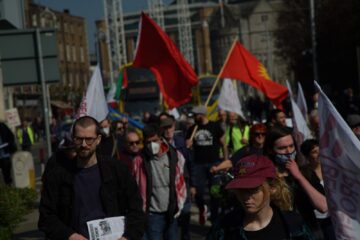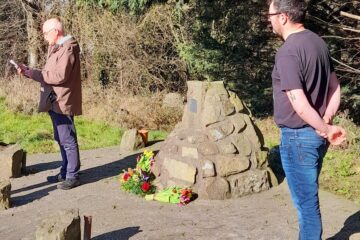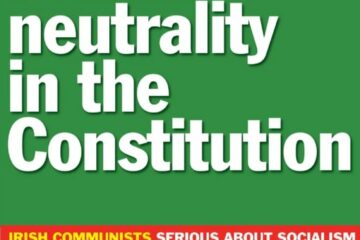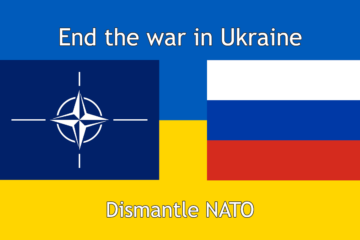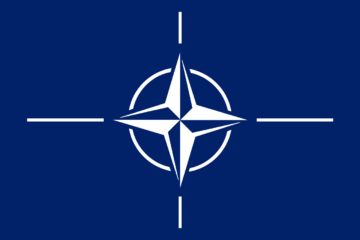26 June 2010
The recent publication of the report of the Saville Inquiry is to be welcomed. It is a repudiation of the two attempts at a cover-up by the Widgery and Whitelaw Inquiries.
The British establishment has been forced to acknowledge that all those murdered and wounded on Bloody Sunday, 30 January 1972, were completely innocent of any crime. Nevertheless it has attempted to place the blame on the actions of individual British soldiers on the day. It is clear that the orders for the actions of the British army came from the very heart of the British government and state. Their strategy was to break the spirit and smash the mobilisation of the people that the Northern Ireland Civil Rights Association had successfully achieved in its struggle for civil rights in Northern Ireland.
As the CPI has been pointing out since the onset of the present economic crisis, working people are paying and will continue to pay a heavy price for the policies of both the Irish and the British governments of bailing out the banks and finance houses, giving priority to the needs of finance capital at the expense of workers.
The most recent emergency budget introduced by the British government is yet another example of making workers pay. The coalition government in London has proposed cutting £128 million (€156 million). This follows the £370 million (€451 million) in cuts agreed by the Northern Ireland Assembly last September.
These savage cuts will bear heaviest on the poor, the unemployed, and those who rely on public services. They will result in significant jobs losses in the public sector and reduced public services and will lead to the further privatisation of existing public services.
It is against this backdrop that we must view the role and potential use of the draconian provisions of the Public Assemblies, Parades and Protests Bill. It is imperative that this legislation be defeated, and it is necessary to mobilise public opinion to do so. What is needed is the enactment of a Bill of Rights, not more repressive measures.
Banks appear to be determined to further deepen the economic crisis and to expose Ireland to even greater debt by pursuing aggressive mortgage policies requiring an impossible increase in house prices over a number of years. Like NAMA, this is leaving Ireland in a position of extreme vulnerability, potentially threatening the solvency of the state itself.
The recent publication in the Republic of two reports on the banking crisis simply confirms what has been public knowledge. They confirm the influence and dominance of banking and speculative investment policies and to some degree the extent of the financialisation of the economy that has been a growing feature over the last two decades. These economic and social policies have dominated all other policy needs and requirements.
Unfortunately the reports, rather than being used to question the basis and direction of the economy, are being used for meaningless party political point-scoring by the egos that occupy Dáil Éireann.
The Regling-Watson Report reveals the effects and the restrictions on possible economic and fiscal policies of the Republic’s adoption of the euro. The abandoning of fiscal controls to the European Central Bank resulted in policies being determined by the major economic powers and by the European finance and banking monopolies.
What is increasingly clear to any objective observer of the policies now being perused is that the crisis can only deepen. The policies now being imposed by the EU Commission, not just in Ireland but in other EU member-states, will only lead to further savage cuts and reduced public spending and will drive millions into poverty. They will only further damage the real economy.
There are no solutions that the EU Commission will consider that would shift the impact of the crisis onto the backs of those who caused it.
The labour movement has to be won away from the belief that solutions can come from the Irish or British governments or from the European Union. The two failed economic entities are being exposed daily, and this process can only increase over the coming months and years. The lasting needs of the people, north and south, can be met only in the process of building an all-Ireland economy, with the maximum democratic contribution from and control by working people.
Mobilising the people back onto the streets is what is now needed, north and south, if working people are to defend their wages, their terms and conditions, and the services the public depend on, to stop the destruction of public services, and to prevent mass emigration. Now is the time to call for the repudiation of the national debt. This debt belongs to the bankers, not to working people.
The selfless and courageous actions of the Irish and other international volunteers in the Freedom Flotilla in breaking the illegal Israeli blockade of Gaza, in particular those who were murdered in cold blood by the Israeli army, stand in stark contrast to the policies of the European Union and the United States, which have encouraged the aggressive policies and actions being pursued by the Israeli regime.
The opportunist, sectarian and divisive actions by elements of the pseudo-left in relation to the recent mobilisation in solidarity with the freedom flotilla actively play into the hands of the forces they claim to oppose.
What is needed is full support by all democratic forces in Ireland in uniting behind the Ireland-Palestine Solidarity Campaign and the Trade Union Friends of Palestine to build on the present momentum and push for the complete economic, academic and cultural boycott of Israel.



